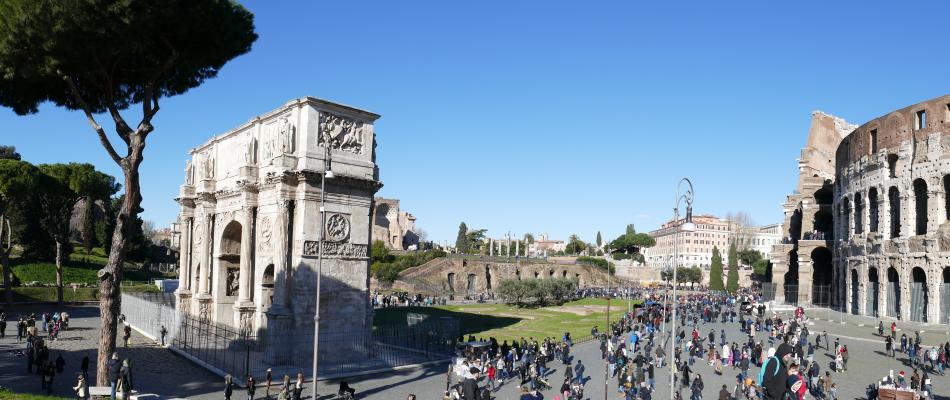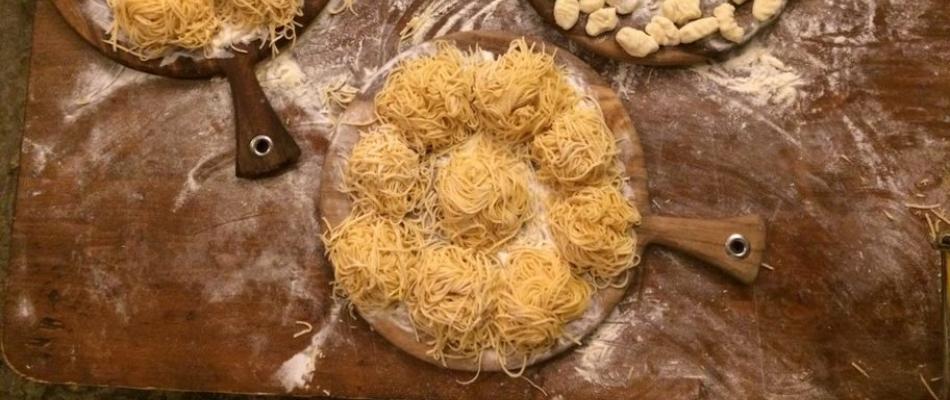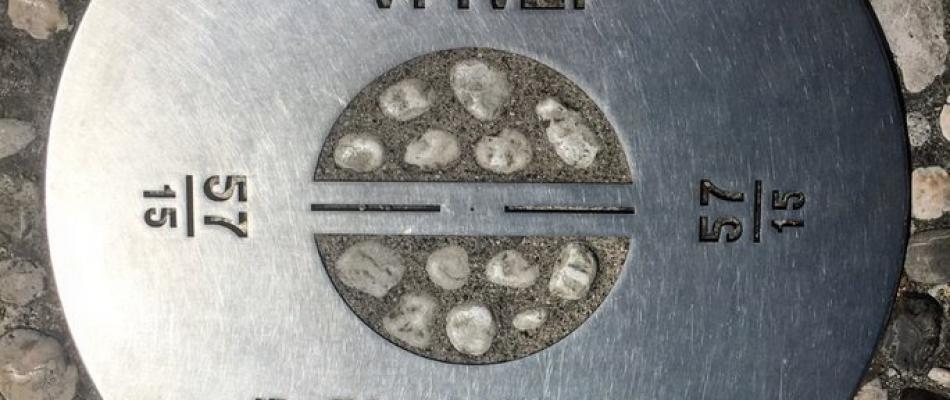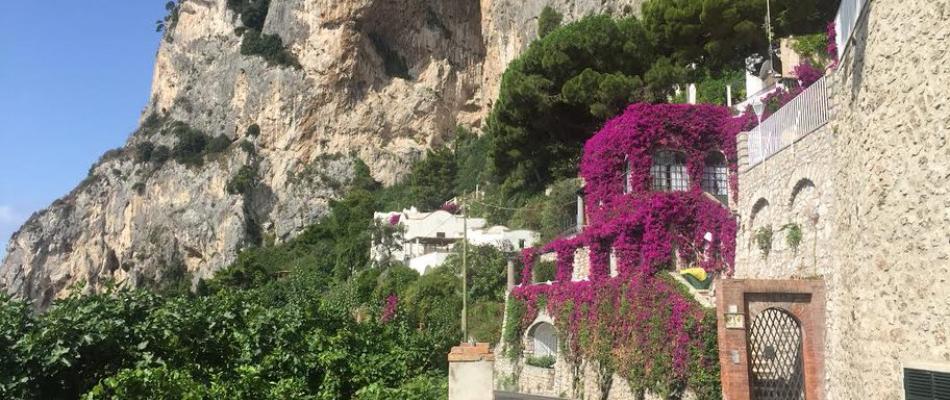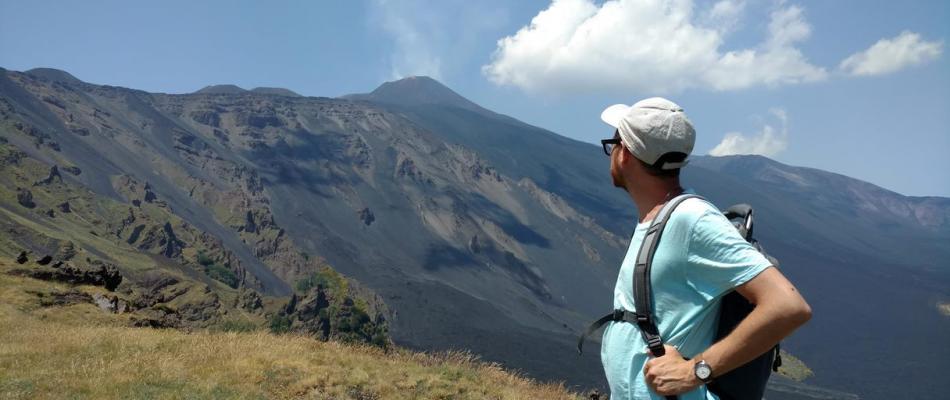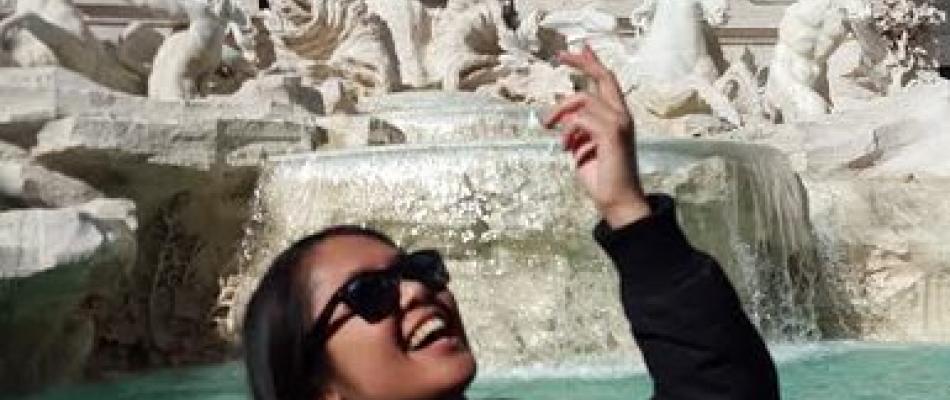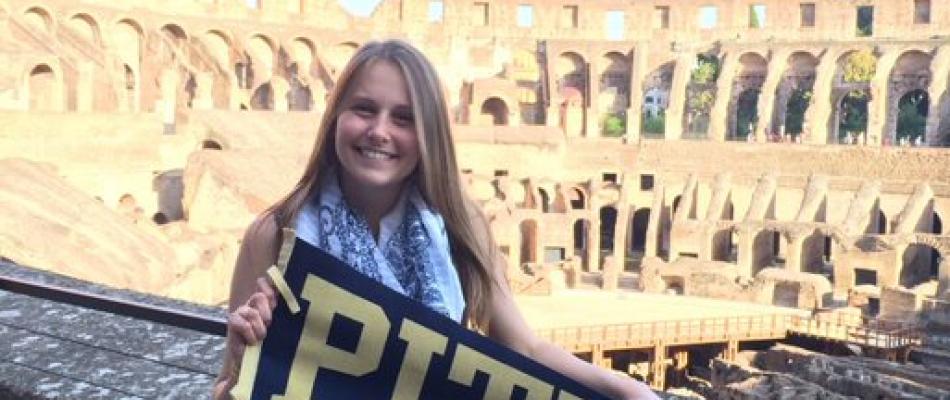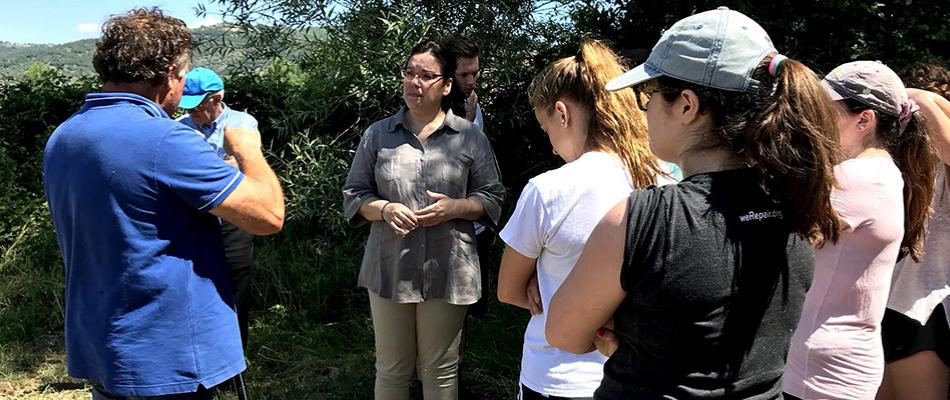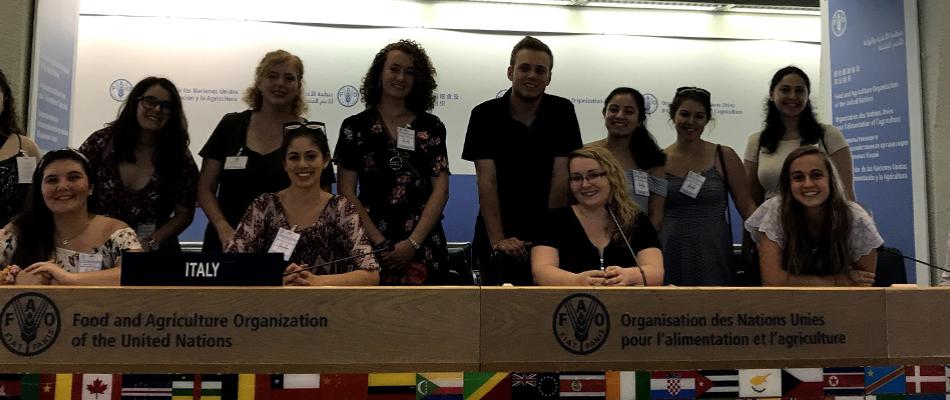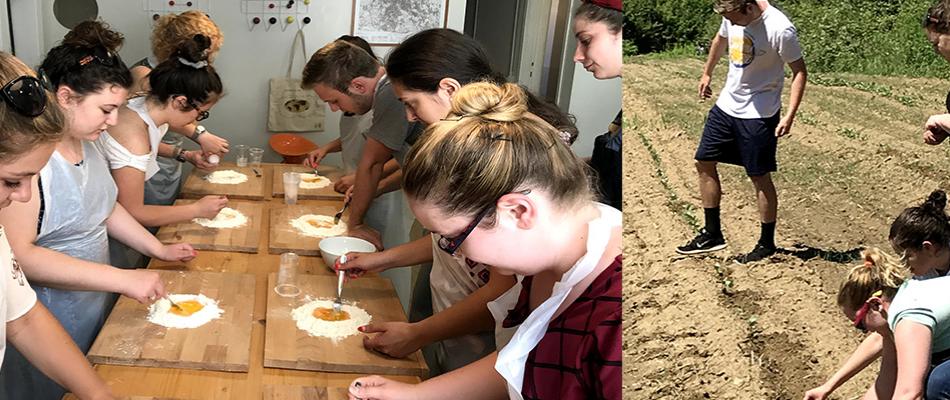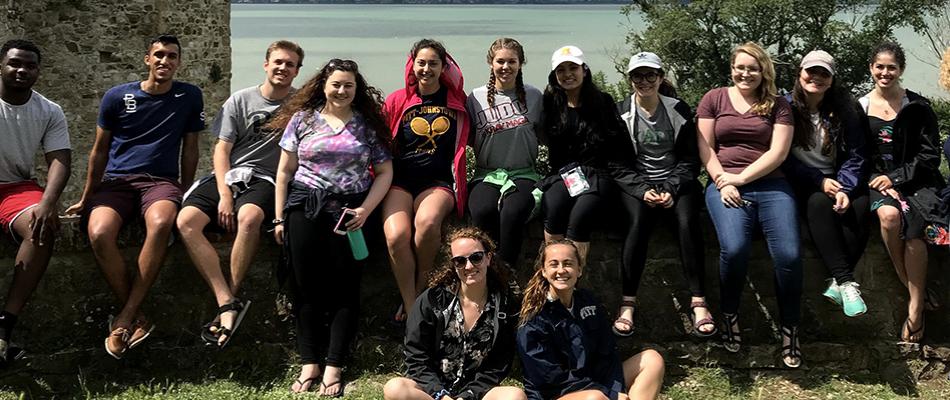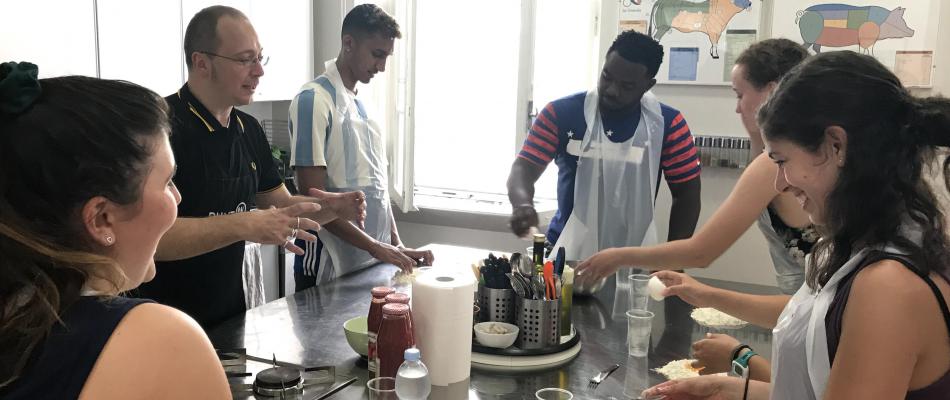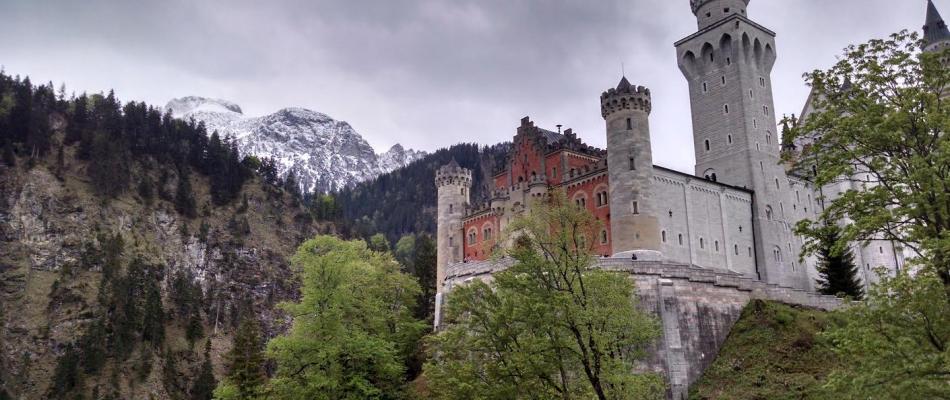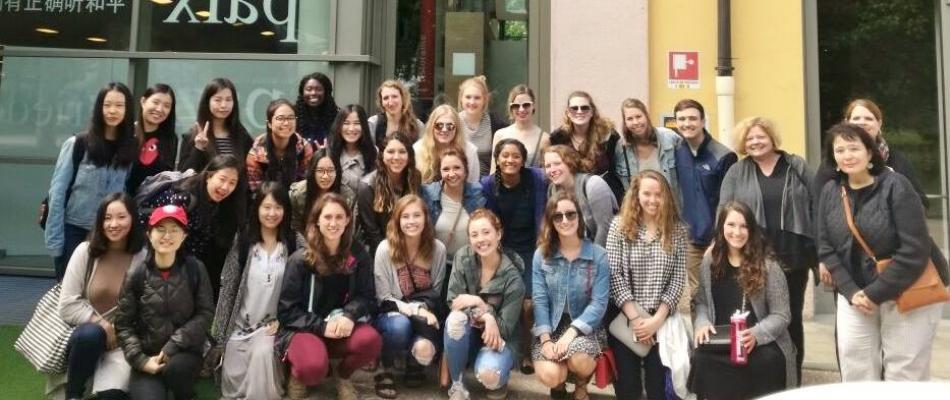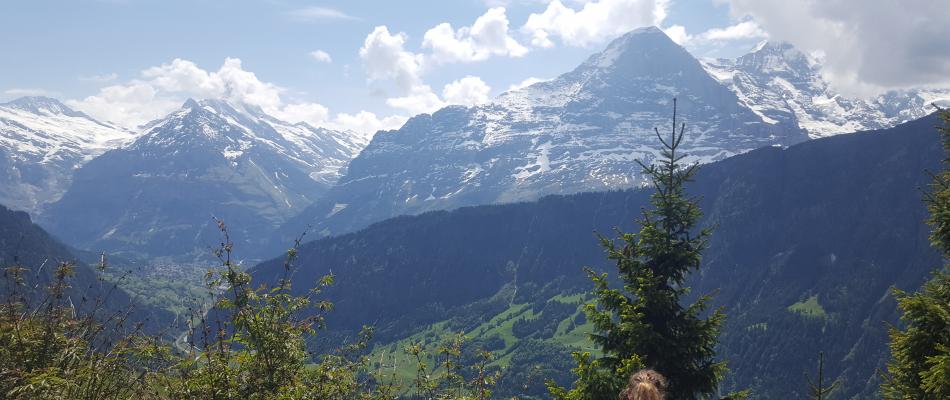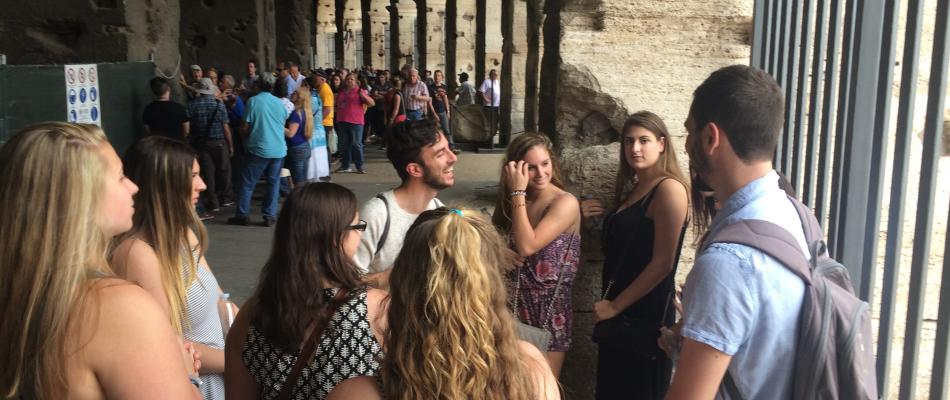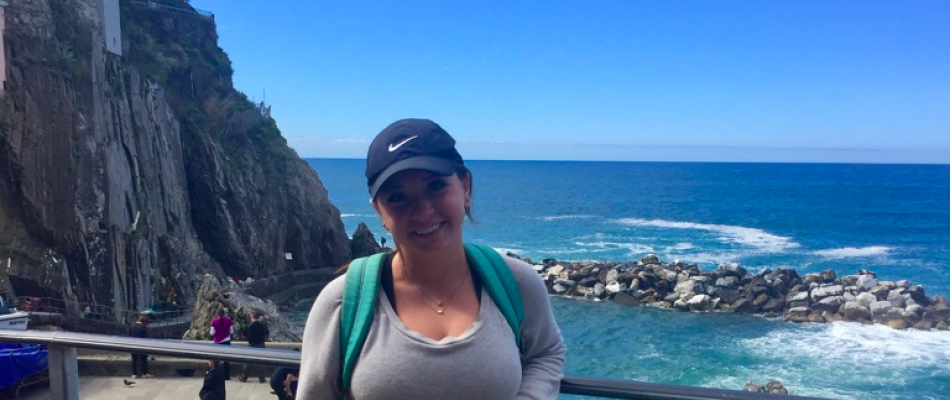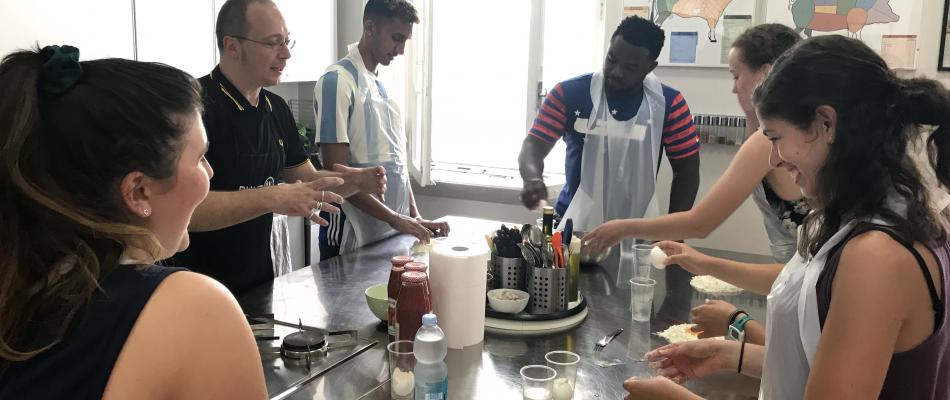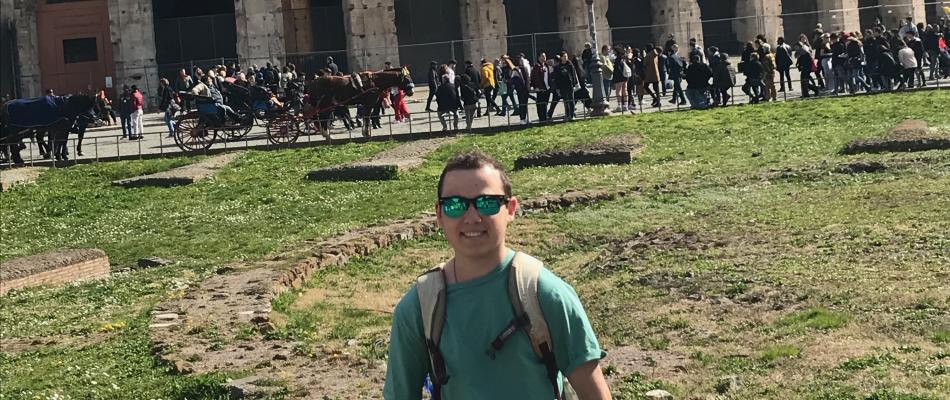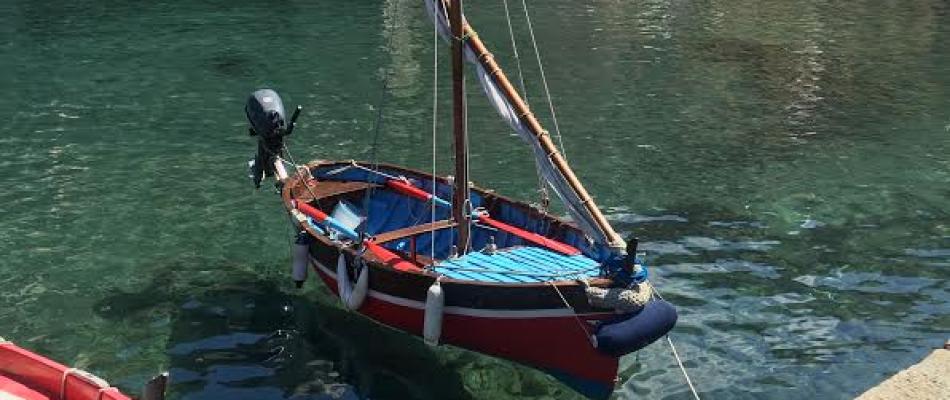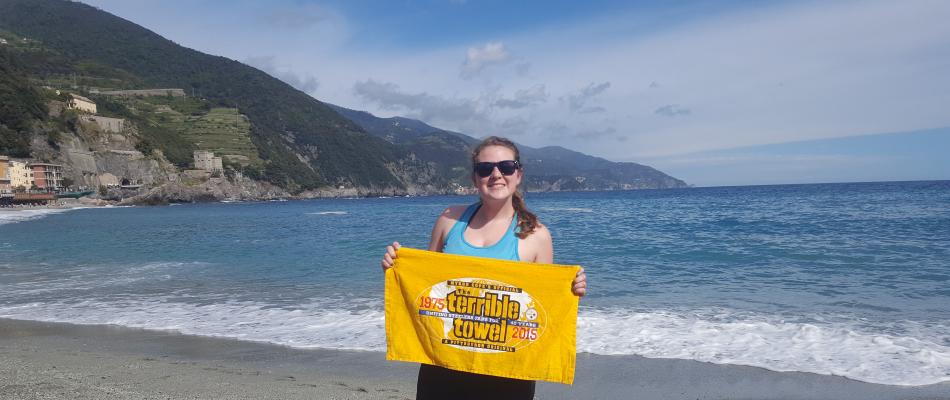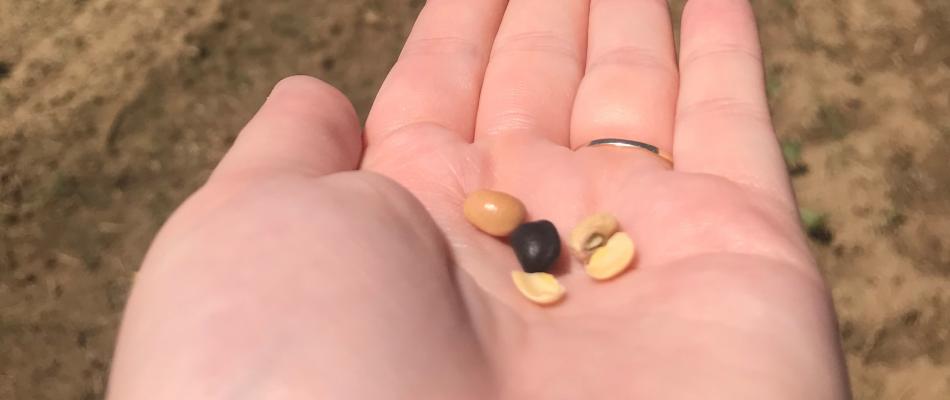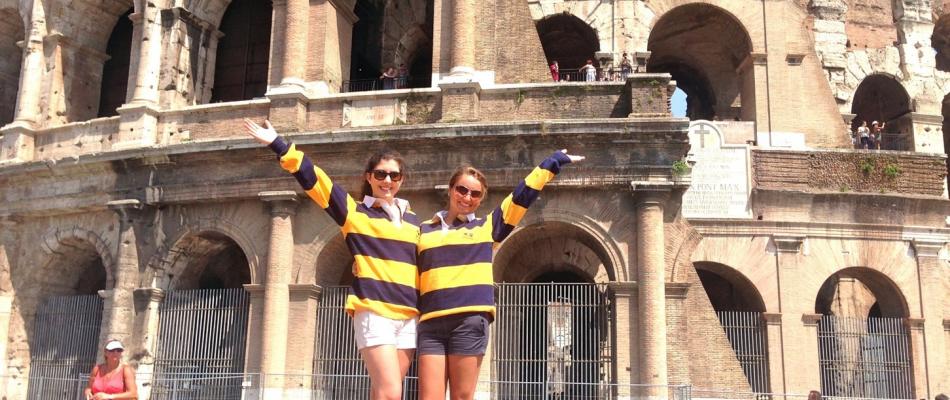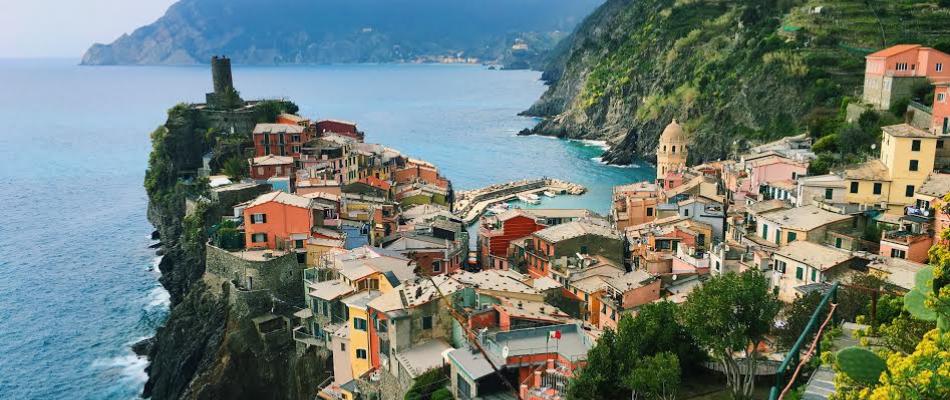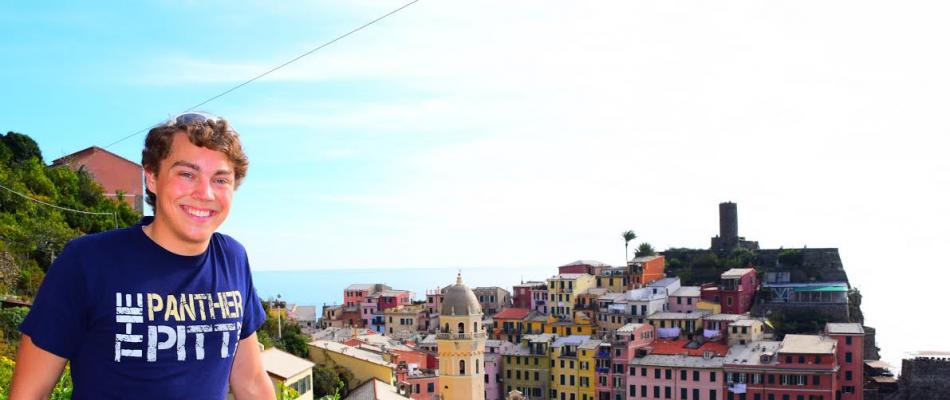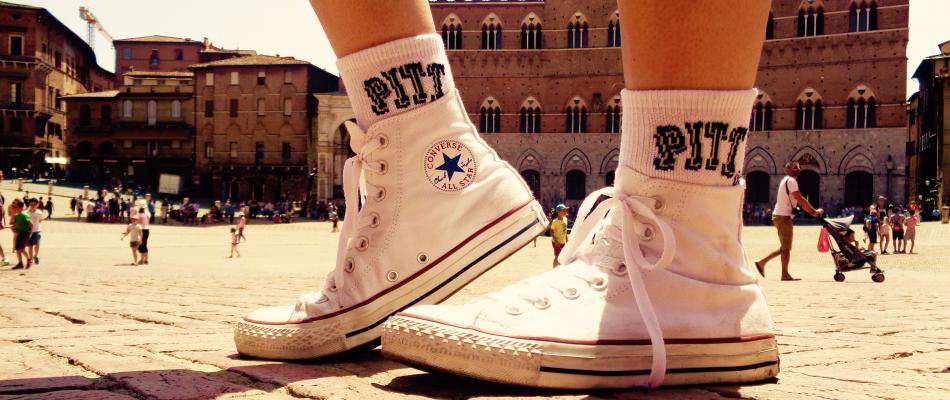Study and live in the Eternal City of Rome, Italy. Students on this program will select two courses to take. Students will have the opportunity to immerse themselves in Italian language and art history while discovering the rich Italian way of life, la dolce vita. This six-week, 6 or 7-credit program (depending on courses selected) is open to students of any discipline, but especially for Italian Majors and Minors, students interested in Italian Language, Culture, and Modern Italy as well as Art History Majors or Minors or any student interested in art history or museums studies.
This program also offers you the opportunity to experience the city first hand as part of your coursework. The city becomes your classroom via local excursions in and around Rome.
Rome, the "Eternal City", is the capital and largest city of Italy and located in the Lazio region. It's the famed city of the Roman Empire, the Seven Hills, La Dolce Vita (sweet life), Vatican City and more. Rome has been a long-standing city for over 2,500 years and is known for power, culture, religion, and innovation. It is not just a city, but it is home to one of the world’s most influential civilizations. The Historic Center of the city is a UNESCO World Heritage Site. With wonderful palaces, millennium-old churches and basilicas, grand romantic ruins, opulent monuments, ornate statues and graceful fountains, Rome has an immensely rich historical heritage and cosmopolitan atmosphere, making it one of Europe's and the world's most visited cities. Today, Rome is a modern, cutting-edge city still surrounded with masterpieces of art, architecture, and culture. Although Rome is heavily trafficked by tourists, it is still easy to find the authentic side of Rome. With so many sights, things to do, and culturally-diverse people, Rome can truly be classified a "global city".
Temperatures and precipitation vary based on the season. In May, the temperatures are pretty mild can average 70-80 degrees Fahrenheit during the day and 50-60 degrees Fahrenheit at night. June can be above 80 degrees. The old stone buildings across the city help in keeping the city temperatures neither too hot nor too cold most of the year. Prepare yourself that A/C is not common and, if/when available, is regulated.
You can expect the following at your accommodations:
- a shared apartment with shared double or triple bedrooms
- Kitchen with the basics
- shared bathroom within the apartment
- A/C
- Meals aren’t included, so plan on learning to cook with local ingredients or budget money to eat out.
We do our best to provide the most accurate information about housing and amenities but due to the nature of the locations in which we offer programs and limited availability, these items are subject to change. Contact your program manager with any questions.
A/C is not common and, if/when available, is regulated. You might be hot while on this program.
Students will earn 6.0 or 7.0 credits (depending on courses selected) upon successful completion of this program. Courses will be comprised of in-class lectures as well as city tours and cultural activities in Rome. Students, regardless of class, should plan to be involved in program-related or course-related activities Monday-Friday during regular hours with the possibility of occasional weekends or evenings. Remember, this is an academic program with a full itinerary.
During the application process, students will be asked to select two of the four courses as their preferred courses. This question is simply to give us an idea of anticipated preferences.
This course will use the city of Rome to introduce students to major trends in the art, architecture, and visual culture of Europe from antiquity to the present. While the course will focus on art produced and consumed in Italy, we will also consider whether such art should be considered Italian. We will make site visits to many of the major churches and museums of Rome, including the Pantheon, Vatican, Galleria Borghese, and other sites.
This course will critically examine the history of public and private collecting practices, the cultural and scholarly rationales behind collecting, and the legal and ethical challenges that collections face. Focusing on the rich collections of Rome, this class will examine how humans have collected artworks over time and to what ends. Using the city of Rome, its museums, and churches as our classroom, we will be able to see how collecting practices have transformed over time. Using the examples of Roman collections,, we will evaluate the arguments for and against universal art museums, the repatriation of works to source nations or original owners, and the protection of cultural heritage during times of conflict.
The goal of this class is to provide novice students with foundations of the Italian language, including basic grammar, vocabulary, and speech patterns, through the lens of art and art history in Rome. Students will work cooperatively in class and independently at home to build their grammar and vocabulary knowledge. Primary goal is to achieve competence in the spoken language, along with basic skills in reading and writing. Face-to-face lessons will be divided between time in the classroom and time visiting relevant sites in the city of Rome, in order to allow the students to employ on the field their newly acquired knowledge.
Intermediate/ advanced semester students of Italian Course Description: The goal of this course is to develop the students’ language knowledge, building on the knowledge acquired in previous courses, through the study of a wide array of Italian literary texts about the city of Rome and its history. In particular we will explore text from three periods, the Fascism era, the boom economico period, and the beginning of the XXI century. This will provide the students the opportunity to read literary texts of different genres and registers.
CIEE is Pitt's partner for this program. CIEE is the country's oldest and largest nonprofit study abroad and intercultural exchange organization. CIEE has helped thousands of people gain the knowledge and skill necessary to live and work in a globally interdependent and culturally diverse world by offering the most comprehensive, relevant, and valuable exchange programs.
Lauren Perri

Hi! I'm Lauren, Program Manager for Arts & Sciences students. As an undergraduate student, I studied abroad in Marburg, Germany. Since then, my career in international education has taken me to many locations around the world. Particularly, I have an affinity for Florence, Italy. There is nothing quite like the challenge of navigating a new city, country, and culture! Let's chat about global experiences.
Schedule an appointment
Schedule an appointment with me using Pathways!
Don't see a time that works for you? Just send me an email at lap140@pitt.edu
Professor Chiara Montera
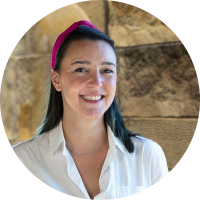
Chiara Montera holds an MA in Italian from the University of Pittsburgh, an MA in History and Religious Studies from Università degli Studi di Firenze, Italy, and a certification for teaching Italian as a Second Language from the Università per Stranieri di Siena, Italy. She obtained a Doctorate in Education (EdD) in 2021 at Pitt's School of Education. Her dissertation Employing a Genre-based Approach to Teach Written Communication in Italian as a Foreign Language explores the use of a Genre-Based Approach applied to writing presentational communication in intermediate classes of Italian. In 2022 Chiara began a collaboration with prof. Alberta Gatti (CUNY, The Graduate Center) and became the project coordinator for the Center for Integrated Language Communities (CILC), a federally funded program which focuses on the teaching and learning of languages other than English, with a special focus on community colleges and minority serving institutions. In addition to writing pedagogy, Chiara is interested in FL pedagogy, the use of literature and history in FL instruction, and the creation of digital open education resources (OER) for the students in the Italian program. She also coordinates the Italian conversation club, the Tavola Italiana.
Professor Christopher Nygren
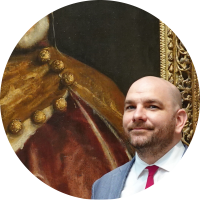
Christopher Nygren is associate professor of early modern art in the Department of the History of Art and Architecture at the University of Pittsburgh. His teaching and research focus on the intersection of religion, philosophy, and art in the Italian Renaissance. In 2022, his book, Titian’s Icons: Charisma, Tradition, and Devotion in the Italian Renaissance (Penn State, 2020), won the Phyllis Goodhart Gordan Prize for best book in Renaissance studies from the Renaissance Society of America. He is currently writing a second book-length project that investigates the phenomenon of painting on stone substrates, which emerged in Italy around 1530. This project is provisionally titled Sedimentary Aesthetics: Painting on Stone and the Ecology of Early Modern Art. Prof. Nygren is also developing several collaborative research projects, including in the Digital Humanities. From 2017 to 2019 he served as Principal Investigator on “The Morelli Machine,” a project funded by the National Science Foundation that sought to examine whether computational methods might be used in the attribution of old master paintings.
Items Billed by Pitt |
||
|---|---|---|
| In-State | Out-of-State | |
| Program Fee | $7,999.00 | $8,199.00 |
| Pitt GEO Admin Fee | $300.00 | $300.00 |
| Est. Total Billed by Pitt | $8,299.00 | $8,499.00 |
Estimated Additional Out-of-Pocket Costs |
||
|---|---|---|
| Airfare | $1,500.00 | |
| Meals and Personal Expenses | $2,000.00 | |
Remember that your lifestyle and spending choices can greatly affect the amount of money you'll need while abroad. Visit our Budgeting page for more information. The above estimates are estimates.
As a part of your program fee, the following are included:
- Tuition for six or seven credits
- Shared accommodations in apartments
- Class-related guest lectures and cultural/academic site visits (including the Vatican Museums, Colosseum, and Borghese Gallery among others)
- On-site orientation and walking tour around Rome
- Transportation passes for the duration of the program
- Welcome/Farewell dinner
- international medical insurance
This program will run for 6 weeks from approximately early May to mid June. See program sidebar for exact dates.
Rome can be very warm in the summer. A/C is not common and, if/when available, is regulated.
You will be asked in the application to identify the two courses you'd be interested in taking. This question is simply to give us an idea of preferences.



